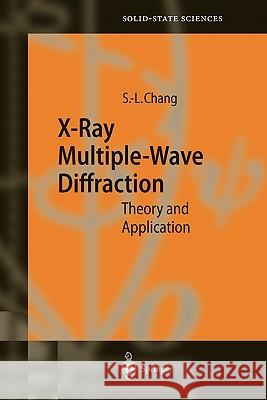X-Ray Multiple-Wave Diffraction: Theory and Application » książka
X-Ray Multiple-Wave Diffraction: Theory and Application
ISBN-13: 9783642059476 / Angielski / Miękka / 2010 / 436 str.
X-ray multiple-wave diffraction, sometimes called multiple diffraction or N-beam diffraction, results from the scattering of X-rays from periodic two- or higher-dimensional structures, like 2-d and 3-d crystals and even quasi- crystals. The interaction of the X-rays with the periodic arrangement of atoms usually provides structural information about the scatterer. Unlike the usual Bragg reflection, the so-called two-wave diffraction, the multiply diffracted intensities are sensitive to the phases of the structure factors in- volved. This gives X-ray multiple-wave diffraction the chance to solve the X-ray phase problem. On the other hand, the condition for generating an X- ray multiple-wave diffraction is much more strict than in two-wave cases. This makes X-ray multiple-wave diffraction a useful technique for precise measure- ments of crystal lattice constants and the wavelength of radiation sources. Recent progress in the application of this particular diffraction technique to surfaces, thin films, and less ordered systems has demonstrated the diver- sity and practicability of the technique for structural research in condensed matter physics, materials sciences, crystallography, and X-ray optics. The first book on this subject, Multiple Diffraction of X-Rays in Crystals, was published in 1984, and intended to give a contemporary review on the fundamental and application aspects of this diffraction.











